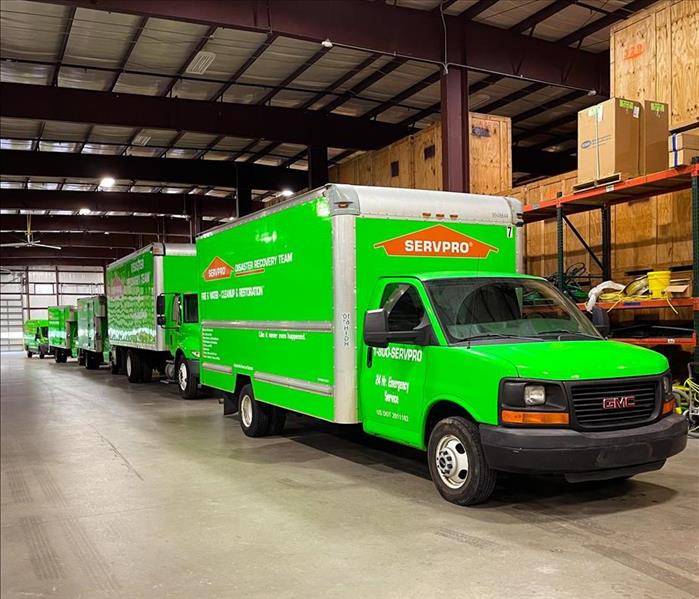5 Easy Maintenace Tips to Help You Keep Your House Safe From Water Damage
3/14/2022 (Permalink)
 SERVPRO of Buford/Suwanee/Hamilton Mill keeps its trucks ready to respond immediately to your water damage emergency.
SERVPRO of Buford/Suwanee/Hamilton Mill keeps its trucks ready to respond immediately to your water damage emergency.
Water damage is an expensive and damaging occurrence. SERVPRO of Buford, Suwanee, and Hamilton Mill has discovered on numerous occasions that careful home or business property upkeep can decrease the risk and expenses of water damage. Living through a water damage restoration event can be stressful, but you can help prevent flooding from structural or routine maintenance concerns by following these simple tips.
1)To avoid dampness and moisture around your windows, replace old caulk around them.
We get a lot of calls for window caulking in Buford, GA and Suwanee, GA. Caulking your windows not only prevents water leaks, but it also helps to keep out drafts. It's a simple procedure that any homeowner can perform. Most window caulk should last approximately five years before needing to be replaced; however, you should check your caulking every year and replace it if it develops cracks or begins to pull away from the glass.
You should also inspect your exterior door flashings for any holes or rust that might allow water entry. You may also help prevent early flashing failure by properly caulking your doors.
2) To minimize water damage risk, check your water heater.
When it comes to our emergency water cleanup services, water heater problems are all too frequent. You may avoid a major water heater flood in your house by maintaining it on a regular basis. To prevent the formation of pressure that might result in a water leak, make sure the water heater's thermostat is set to regulate the temperature properly.
It's often the case that water heaters develop rust or silt inside, resulting in an odd taste or smell in the water. If your water starts to make unusual sounds, it may be time for a checkup or a new water heater.
3) Examine your water hoses and connections for leaks and replace them if they appear to be worn.
Look for any holes, kinks, fraying, wear, or corrosion on the hoses and connections. If you find any damage, get it fixed right away. To avoid unexpected water damage problems, most manufacturers and plumbers recommend replacing water hoses and connectors every 3-5 years.
4) Make sure the roof and gutters are clear of debris and that your attic shows no signs of moisture damage.
Rainwater backing up and overflowing onto your roof may harm the roofing material and seep into the house, causing problems.
Look for leaking flashing around vents, valleys, chimneys, pipes, and skylights. Anywhere on your roof where there are holes or connections is a potential source of leaks later on. If the flashing becomes deformed due to weather, rusted, or loses its seal, water might flow into your property.
Examine the interior of your attic for moisture or mold growth. If you detect damp, injured, or moldy insulation, decaying or discolored boards or ceiling panels, or puckering in the sheetrock, you may have a leak on your hands.
5) Check for any leaks or flooding in the HVAC condensation lines by cleaning and inspecting them.
When HVAC condensation lines are clogged, water leaks out, resulting in water damage and flooding in surrounding areas of your property. Check your condensation lines every month to ensure they're clean.
To clean out obstructions and grime from your condensate drain, pour one-half cup of plain, white vinegar four times a year down the drain. Bleach should not be used since it may damage your metal drain pan and result in deterioration. If you detect an abundance of debris or mold, our SERVPRO experts can assist you with any water damage cleanup.
We are Here to Help for All of Your Water Repair Needs
If you or someone you know need water damage repair service, contact our staff at SERVPRO of Buford/Suwanee/Hamilton Mill!
Save our phone number for when you need help in the future, or contact us right away for a quick response from one of our IICRC educated water restoration professionals.
We are always Here to Help!






 24/7 Emergency Service
24/7 Emergency Service